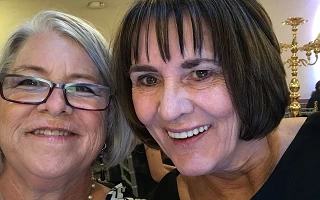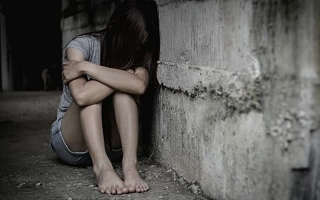When a survivor finds herself outside of the sex trafficking world—starting over is journey of recovery and rediscovery. She must reconnect with her humanity to realize she is not a commodity to be discarded.
Catholic Charities Diversion program gives survivors skills and understanding to heal from trafficking.
When a survivor finds herself outside of the sex trafficking world—starting over is journey of recovery and rediscovery. She must reconnect with her humanity to realize she is not a commodity to be discarded.
Catholic Charities Diversion program gives survivors skills and understanding to heal from trafficking. Former sex-trafficked survivors, who are now pursuing their dreams, play a significant role in helping women entering the program to have hope. They are the “heart” of the program—encouraging women to feel understood and accepted.
3 Steps to Recover for Sex Trafficking Survivors
Dr. Jon McCaine, a psychologist with more than 30 years of experience with survivors, who works in Catholic Charities Diversion program, says survivors can start a road to living a healthy and vibrant life by taking these three steps.
1) Finding Safety
Establishing and maintaining a secure and safe place, survivors can begin the process of rebuilding. Some examples would be a residential program, group home, or some place of residence where they can experience day-to-day safety from harm, fear, exploitation and gain psychological distance from sex trafficking and the emotional consequences.
2) Network of Support
Building a network of meaningful relationships is important for survivors so their sense of worth, value, importance and humanity can be restored and affirmed. This network should include counselors knowledgeable about the consequences of sex trafficking on survivors. It is essential to develop meaningful family relationships and friendships with people who are supportive of recovery and capable of providing encouraging and hopeful messages about the future.
3) Becoming Self-Sufficient
It is essential for survivors to find a pathway to self-sufficiency through continuing education, job training and career path development to recapture a sense of direction and purpose in their life. They must rediscover their interests and talents. Surviving is not enough. They must redefine themselves and cease being defined by their status as formerly abused and trafficked woman—and begin the process of self-definition based on personal interests, aspirations, and goals for the future.
The road to recovery for a survivor is long and difficult. McCaine compares it to Gabrielle Giffords' recovery from a gunshot wound. “Sex trafficking is like a gunshot wound or traumatic brain injury to the psyche that requires basic foundational retraining,” said McCaine. “Giffords had to relearn how to speak, move and later to walk step by step. Sex trafficking is a traumatic blow to the very essence of a trafficked woman’s humanity. They also have to overcome guilt, shame, and personal soul searching—as well as people blaming them and overcoming social stigmas.”
Survivors can find hope in Catholic Charities Diversion program. Consider joining our Stop Sex Trafficking Team to help survivors get the support they need to start a new life. Or if you are or know of someone who is being sex trafficked, call 602-258-2785 for help.








